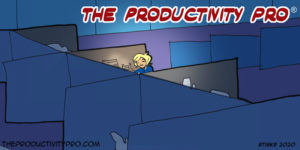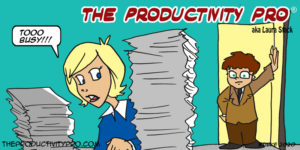
by Laura Stack, MBA, CSP, CPAE “First, forget inspiration. Habit is more dependable. Habit will sustain you whether you’re inspired or not. Habit is persistence in practice.”— Octavia Butler, America author and MacArthur Fellow. As complex as people are, when it comes down to it, you might consider us intelligent meat machines fueled by chemical reactions and guided, in large part, by programs we call habits. These boil down to repeated, automated actions—something like those of a robot on an auto assembly line, though not as stringent, and not always occurring in the same order. One of my colleagues almost always makes a large cup of coffee first thing each morning, eats a bagel, and gets to work. After years of doing it daily, he doesn't have to think about the process of … [Read more...]











